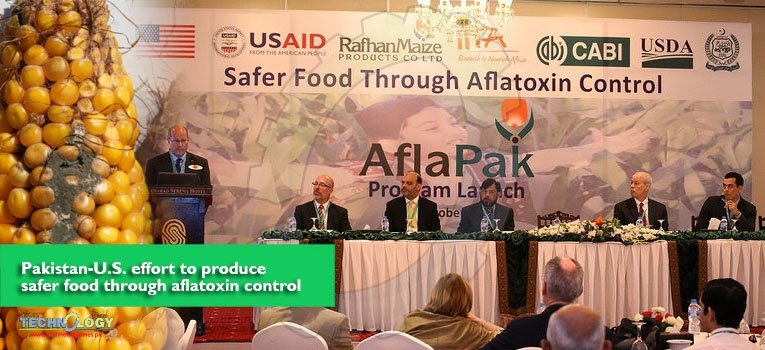Researchers, government agencies, and private businesses from Pakistan and the United States announced that their cooperation to eliminate a toxic fungus that causes liver cancer and stunting in children.

The joint effort also aims to improve nutrition and safeguard the health of Pakistan’s citizens by securing a disease-free food supply.
Officials from the U.S. Department of Agriculture (USDA) are working with the Pakistani company Rafhan Maize Products to target the fungus aflatoxin, which occurs naturally in crops. The project will use a cutting-edge USDA technology that works to eliminate aflatoxin in the fields, where it affects up to 25% of all crops grown.
This joint effort will make Pakistan a leader in global efforts to grow safer vegetables, such as maze, as well as nuts, such as pistachios, and will even help secure the health of livestock by protecting the plants grown as feed for the animals.
At the event to announce the project, Deputy Chief of Mission John Hoover from the U.S. Mission Pakistan congratulated the partners working on this effort and highlighted the long history of U.S.-Pakistani cooperation in the field of agriculture.
Commenting on the impact that fighting aflatoxin will have, Hoover commented, “It will affect the health and job prospects of thousands of Pakistanis and improve the economic viability of Pakistani commodities for export.”
Key partners working with the USDA to safeguard Pakistani crops include the International Institute of Tropical Agriculture, the U.S. Agency for International Development, the National Agricultural Research Centre, and the Centre for Agriculture and Biosciences International.